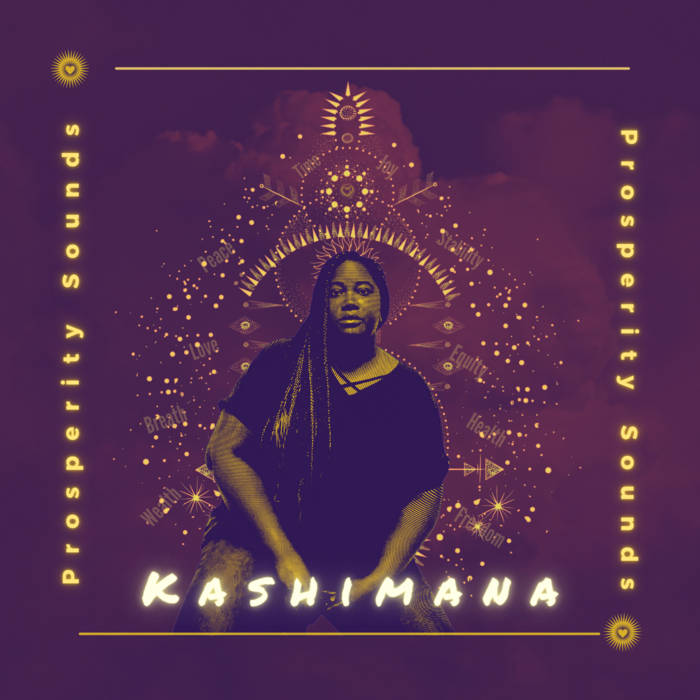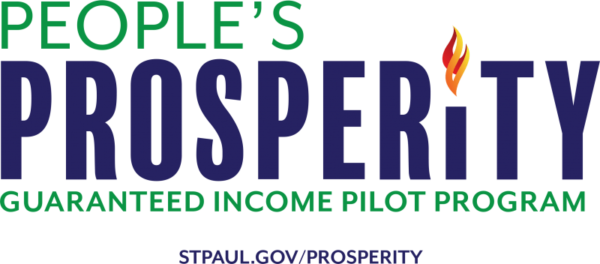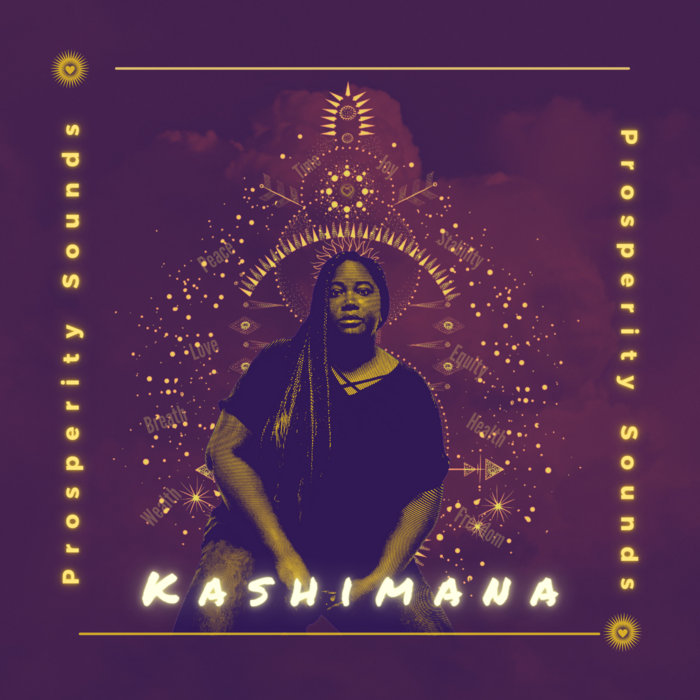Artists Respond Q&A: Kashimana
In 2021 the City of Saint Paul launched the People’s Prosperity Guaranteed Income Pilot program, and Springboard for the Arts launched a Guaranteed Income for Artists pilot program to go alongside the City’s pilot. To deepen the impact of these pilot programs, the City and Springboard partnered on Artists Respond: People, Place, and Prosperity, a cohort of artists creating public projects that demonstrate the root causes that lead to the need for guaranteed income, and the impact of guaranteed income on families and communities. In these Q&As, hear from the artists about their work!
After moving to the U.S. from Nigeria more than 20 years ago, Kashimana noticed a big difference in the way people treated each other. When her college roommate would order a pizza, she says, they wouldn’t offer her any of it, or they’d charge her $3 for a slice. “It was like, ‘Oh, this is the normal for people,’” Kashimana says. “I remember thinking, ‘That’s really odd.’”
Visiting Nigeria in 2016, Kashimana and their husband accidentally offended their braider for a similar reason. When their mom explained the offense, they “shrank down to a two-year-old again,” they said. “It was a reminder of the little things that you do to look after the people around you, even without them asking. My mom was like, ‘To expect them to ask is an insult, too.’”
That’s part of why Kashimana is interested in guaranteed income: an automatic, no-strings-attached measure of community support. As a member of Artists Respond: People, Place, and Prosperity, they have recorded and released a Prosperity Sounds EP, inspired by guaranteed income and the experience of living in a capitalistic society during a pandemic.

What is your project, and how does it connect to the People’s Prosperity Guaranteed Income pilot?
The project is still morphing, because I’m mixing the sound down right now. But the nugget of the idea is, “What does prosperity sound like?” As a musician, I’m trying to respond to that. Right now, I have three songs that I’m putting together.
One of the songs is called “Shallows,” which was based off of somebody’s comment in one of Katharine DeCelle’s interviews. I’m paraphrasing, but the person felt like they were drowning, and the guaranteed income allowed them to get their heads above the water and find some stability.
And then there’s one — I don’t know if it’ll make it on this project, but I like the song. The title — you might laugh — is called “I Want That F U Money.” The whole idea is about being able to be like, “Eff you, I choose me. I’m gonna walk away from the situation, because it’s toxic, and it’s been toxic.” They’re calling it the Great Resignation, right?
The music itself is kind of meditative. One of the things that we talked about as a cohort was having that resonating breath, that unbound time to breathe and relax. And some of my loops are like that. I hope people are relaxed by the music, but I also hope that people are able to have some deep thought. And then with “F U Money,” I hope people are able to bop to it. Groove with it. Use it as a friggin’ inspirational “get down and ask for what you need” — for what you want. And be real about that, too.
I thought I’d come into the project really responding with some buoyancy, but the songs have been a little bit more real. It came out more confrontational than I thought it would be.
What interested you in this opportunity to create a project around guaranteed income?
I’ve always thought guaranteed income is something that we should all have. Everybody in society deserves to be taken care of, no matter what circumstances we’re in, no matter where we find ourselves in life. Taking care of each other and ourselves seems like the basic thing that we’re put on this earth to do.
That guaranteed income could allow — in my mind — people that have been stolen from to have some relief to get ahead, to be stable, to even have the income where people can pivot and change careers or go to school or pay for basic things like health care.
How did the cohort experience influence your project?
It was really fun to talk about our projects. It’s always tough with Zoom, because there isn’t a natural flow. But meeting my cohort and hearing about their projects was encouraging, especially because as artists, sometimes we get in our own siloes.
I knew DejaJoelle before this, but the Milligan Studio, I didn’t really know their work. And Katharine DeCelle and also Briauna Williams, I didn’t really know their work. And I got to ask them each the question, “What does prosperity sound like?” Their responses were really, really helpful. Really deep.
This program is about narrative change. What dominant narrative do you believe your project might counter?
The last song is called “Shecession.” Speaking towards being a mother and dealing with the shecession and unseen labor. And how we take that for granted as a society — like, “Mothers will always look after their kids, because they have this bond,” and blah blah blah. Also, the fact that the pandemic really brought that [unseen labor] into sharp focus for a lot of people.
As a Black mother, I think speaking out against racism and resilience always comes in my work. It’s not spelled out or anything in this project, but that’s something that’s always at the center of my work and how I use my voice, literally speaking against injustice.
Download and stream “Prosperity Sounds”:
Learn more about Artists Respond: People, Place, Prosperity and Guaranteed Income:


